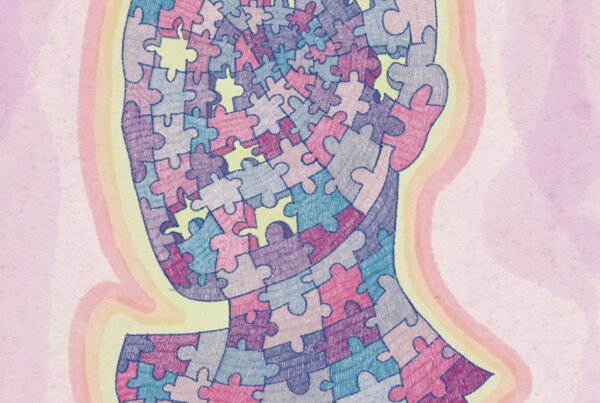
PSYCHsources introduces a different topic from psychology every month. It offers a list of resources that are useful to anyone who wants to learn more about it. In this issue, we introduce health psychology.
Health psychology is the study of the biopsychosocial factors that impact health. Given the seemingly infinite determinants of health, health psychology is an incredibly broad and interdisciplinary field. Health psychology overlaps with disciplines such as public health, behavioural economics, and biology. Health psychology differs from clinical psychology in that clinical psychology focuses on mental disorders, while health psychology focuses on the interaction between mental and physical health. Some of the major research areas include stress, obesity, and addiction. It is difficult to do health psychology justice, but, in essence, the field focuses on the promotion of health and the prevention of illness. Research tends to emphasize the latter, as health has traditionally been defined as the absence of disease (Scriven, 2010). However, this perception has changed in recent decades, as reflected in the World Health Organization’s definition of health: “health is a state of complete physical, mental and social well-being and not merely the absence of disease or infirmity” (David, n.d.). In recent years, health psychology has borrowed from the positive psychology playbook in taking a more promotion-focused approach, in that they don’t stop at illness prevention, and instead strive to promote wellbeing.

Photo by Sage Friedman
This course offered by Yale University is about all things food related – from the individual (preferences, aversions, disordered eating) to the sociopolitical (the obesity epidemic, public nutrition policy). Naturally, what we eat is of huge concern to health psychologists, and understanding why we eat what we eat is key in shaping health policy.
To pivot to another major area of health psychology – stress, the UvA offers a current topics course on stress in health and disease. I’ve taken this class myself and I would recommend it to anyone curious to know more about the biological mechanisms underlying the effects of stress on the body. Why is it that children in unstable family environments have a higher incidence of insulin-dependent diabetes? Why do wounds heal more slowly in people with depressive symptoms? What is broken heart syndrome? If these questions pique your interest, and you’re prepared to brush up on your biology knowledge, this might be the class for you.
If you don’t want to commit to taking an entire course on stress, this lecture is a great introduction to the field. Robert Sapolsky explains why, despite facing fewer existential threats than our ancestors (e.g. getting mauled by a lion), we have more stress-related illnesses. Sapolsky is an incredibly engaging speaker and you’ll find that this 90-minute video flies by.
- Why Zebras Don’t Get Ulcers by Robert Sapolsky
If reading is more your style, Dr. Sapolsky also wrote a book on Why Zebras Don’t Get Ulcers. The book covers more ground than the lecture, such as the impact of stress on memory, sleep, and addiction.
The area of health psychology I personally find most interesting is the impact of socioeconomic status (SES) on health. This growing body of research shows that there is a socioeconomic gradient in health – the lower your SES, the worse your health. The impact of SES on health is pervasive – influencing not only lifestyle choices, but also exposure to disease and quality of healthcare (Evans & Kantrowitz, 2002).
Socioeconomic status is linked to a number of health-related behaviours, for example smoking, physical activity, and dietary choices.
This review examines research on the connection between SES and air pollution-related disease. The proposed mechanism is the triple jeopardy hypothesis: people with low SES have a greater rate of exposure to air pollution, which, in combination with being more susceptible to poor health (e.g. through chronic stress, worse healthcare access, discrimination, fewer opportunities for healthy lifestyle choices), leads to a greater incidence of environment-related disease.
Given the racial disparities in social mobility and SES, race is also a determinant of health. This study found that racial minorities in the U.S. are disproportionately impacted by the Covid-19 crisis, with higher exposure risk, cases, hospitalizations, and deaths.
The socioeconomic gradient in health is far-reaching: for example, evidence points to SES being a key predictor of brain development and neurocognitive performance, as shown in this literature review by Hackman and Farah. In a (supposedly) meritocratic system, these findings have huge implications.


